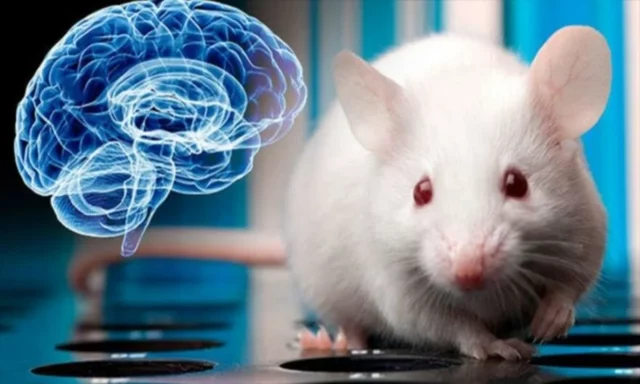Scientists at Stanford University in the United States have transplanted human neurons from a patient with Timothy syndrome into the brains of newborn mice. Its objective is to study the efficacy of new drugs that treat this rare congenital disease and, in the future, some neurological disorders in humans, such as schizophrenia and autism.
“Now we can test new drugs in animals and study their effects on transplanted human neurons”, Sergiu Pasca, a Romanian doctor who led the study, told the newspaper ‘El País’, published this Wednesday, October 12, in the prestigious magazine ‘Nature’. After the experiment, not without controversy, the experts have not only managed to successfully integrate these cells into said organ, but also influence the behavior of the animals.
Creating human neurons
Pasca and his colleagues took skin cells from the volunteers and, using a chemical cocktail, rewound them back to their embryonic stem cell state, at which stage they can become cells of any tissue or organ. After converting millions of them into brain neurons, the new products were condensed into tiny spheres a few millimeters in diameter, known as ‘brain organoids’.
These organoids, a kind of ‘human mini-brain’, were transplanted into the brains of a group of rats that had been genetically modified to deprive them of the immune system and thus not reject the grafts. The animals were between 3 and 7 days old and were being trained to lap up a tube when they need to drink water.
The scientists verified that the integration of the organoids into the brain of the rodents had been successful, since they were activated by touching the whiskers of the animals. They also certified that their behavior and learning could be controlled at will, since, after activating human neurons using laser bursts (a technique known as optogenetics), the rodents instantly went to the device to quench their thirst.

In search of drugs for brain disorders
According to Pasca, the main application of this experiment will be the investigation of psychiatric and neurodegenerative diseases. Now they have started with Timothy syndrome, a rare disorder that causes serious neurological and heart problems in children. They did so by transplanting cells from three patients with this syndrome into the brains of rodents and detected hitherto unknown neuronal defects.
In future experiments, they promise to extend their study to other disorders, such as autism and schizophrenia. “To understand psychiatric disorders we need better models. And, the more humane these models are, the more we will have to address these ethical issues”, points out the Romanian doctor, who advises against using this strategy in monkeys or apes. “We need to strike a balance between the potential benefits of avoiding some of the suffering caused by these devastating brain disorders and the risks of generating models that are too human-like”, he concludes in favor of such experiments.

